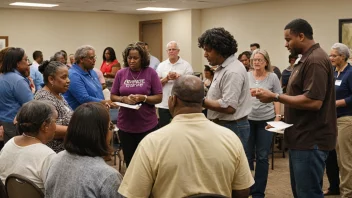Introduction
Literacy is a fundamental human right and a cornerstone of social justice. In this article, we will explore how social justice principles can be integrated into literacy education, ensuring that all individuals, regardless of their background, have equal access to reading and writing skills. You will learn practical steps to promote social justice in literacy education and how you can contribute to this important cause.
Step 1: Understand the Connection Between Literacy and Social Justice
To effectively advocate for social justice in literacy education, it is essential to understand the intrinsic connection between these two concepts. Literacy is not just about reading and writing; it is about empowering individuals to communicate, access information, and participate in society.
- Access to Information: Literacy enables individuals to access critical information related to health, politics, and their rights.
- Empowerment: Literate individuals are better equipped to advocate for themselves and their communities.
- Social Mobility: Literacy is often linked to educational and employment opportunities, breaking the cycle of poverty.
Step 2: Promote Inclusive Literacy Programs
Inclusive literacy programs are designed to cater to the diverse needs of learners. When developing or supporting literacy initiatives, consider the following:
- Assess Community Needs: Conduct surveys or focus groups to understand the specific literacy needs of your community.
- Develop Culturally Relevant Materials: Use texts and resources that reflect the backgrounds and experiences of all learners.
- Offer Multilingual Support: Provide literacy resources in multiple languages to accommodate non-native speakers.
Step 3: Advocate for Equitable Funding
Access to quality literacy education often hinges on adequate funding. Here are ways to advocate for equitable funding:
- Research Funding Disparities: Identify gaps in funding for literacy programs in underserved communities.
- Engage with Policymakers: Contact local and national representatives to advocate for increased funding for literacy education.
- Collaborate with Organizations: Partner with nonprofits and community organizations that focus on social justice and literacy.
Step 4: Foster a Supportive Learning Environment
A supportive and inclusive classroom environment is vital for effective literacy education. To foster such an environment, consider these strategies:
- Encourage Open Dialogue: Create spaces where students feel safe to express their thoughts and experiences.
- Implement Differentiated Instruction: Tailor teaching methods to meet the diverse learning styles and needs of students.
- Celebrate Diversity: Incorporate diverse voices and perspectives in the curriculum to promote empathy and understanding.
Step 5: Engage in Community Outreach
Community outreach can significantly enhance literacy education and promote social justice. Here’s how you can get involved:
- Organize Literacy Events: Host workshops, reading nights, or book drives to engage the community in literacy activities.
- Volunteer Your Time: Offer your skills and time to local literacy programs or adult education classes.
- Spread Awareness: Use social media and local platforms to raise awareness about the importance of literacy and social justice.
Step 6: Measure and Evaluate Impact
To ensure your efforts are effective, it’s crucial to measure and evaluate the impact of your literacy programs:
- Set Clear Goals: Establish measurable objectives for your literacy initiatives.
- Collect Feedback: Regularly gather feedback from participants to assess their learning experiences.
- Adjust Programs Accordingly: Use the feedback and data collected to make necessary adjustments to improve program effectiveness.
Conclusion
By understanding the connection between social justice and literacy education, promoting inclusive programs, advocating for equitable funding, fostering supportive environments, engaging in community outreach, and measuring impact, you can play a significant role in advancing literacy as a tool for social justice. Remember, every small action counts, and together we can create a more equitable future for all.






